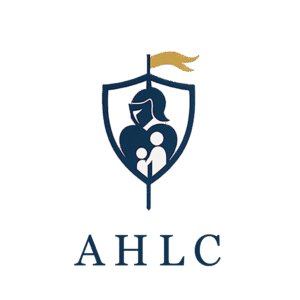Non-Distribution Constraint Policy for Children’s Care Provider
This document outlines a comprehensive Non-Distribution Constraint Policy for a private residential children’s care provider. The policy aims to ensure that all profits are reinvested into improving services, facilities, and staff development, rather than being distributed to shareholders.

It addresses concerns about profiteering in the children’s social care sector and aligns with potential future regulatory changes. The policy covers profit allocation, strategic development, financial oversight, and governance, emphasising transparency and commitment to high-quality care for vulnerable children.
Purpose and Rationale
The Non-Distribution Constraint Policy is implemented in response to growing concerns within the children’s social care sector. These concerns include unsustainable increases in placement costs and profiteering at the expense of public funds intended for the care of vulnerable children.
- Rising Costs: Local government spending on looked-after children has increased from £3.1 billion in 2009/10 to £7 billion in 2022/23.
- Market Concerns: The 2022 Competition and Markets Authority report highlighted issues of unjustified profit levels by some private providers.
- Policy Objective: To reinvest all profits back into company operations, improving care quality, supporting staff development, and enhancing facilities.
This policy aligns with potential future regulatory changes aimed at preventing excessive profiteering in the sector. It demonstrates the company’s commitment to transparency, fairness, and prioritising the welfare of children in care.

Financial Oversight Scheme
The Department for Education is introducing a new financial oversight scheme to promote transparency and reduce risks associated with provider failure. The company will fully comply with this scheme, which includes:
- Criteria for ‘Difficult to Replace’ Providers
The company will ensure it meets the Department’s classification criteria. - Ongoing Financial Assessments
Comprehensive financial information will be provided up to the parent company level. - Collaboration with Ofsted
The company will cooperate in assessments of overall risks to service stability. - Contingency Planning
Adequate cash reserves and contingency plans will be maintained. - Advanced Warning System
The company will work with the Department to provide early warnings of financial risks to local authorities.
This scheme ensures that the company maintains financial stability and transparency, prioritising the continuity of care for children in its charge.
Profit Allocation and Reinvestment
A percent, i.e. (5%+) of profits generated by the company will be reinvested into key areas to improve services and ensure long-term sustainability. This approach aligns with the company’s commitment to prioritising the welfare of children in its care.
- Facility Improvement: Enhancing residential accommodations, play areas, and educational resources.
- Staff Development: Investing in ongoing professional development to maintain high care standards.
- Service Expansion: Developing new programs, therapies, and support systems for children in care.
- Compliance: Ensuring adherence to all legal, regulatory, and industry standards.
Additionally, funds will be allocated to research and development initiatives aimed at improving child welfare practices and outcomes in residential care settings. This reinvestment strategy ensures that all financial surplus directly benefits the children in care and supports the company’s mission to provide exceptional care services.

Strategic Development and Reviews
To ensure long-term success and sustainability, the company will implement a structured approach to strategic development and regular reviews. This process includes:
- Strategy Reviews and Development
Regular evaluations of current strategy and identification of key organisational goals within achievable timeframes.
- Facilitated Sessions
Strategy away days and board facilitation to enable deep discussions and innovative thinking among leadership.
- Vision and Mission Reviews
Regularly revisiting and updating the company’s vision, mission, and theory of change.
- Horizon Scanning and Risk Management
Monitoring the environment for future opportunities and risks, developing mitigation strategies.
- Stakeholder Engagement
Actively seeking input from staff, trustees, volunteers, partners, and service users to evaluate and adjust strategic priorities.
These strategic processes ensure that the company remains adaptable, forward-thinking, and aligned with its core mission of providing high-quality care for children.
Restrictions on Profit Distribution
The Non-Distribution Constraint Policy strictly prohibits the distribution of all the company’s profits, surplus, or assets to any individuals or organisations outside of legitimate business operations. This restriction applies to:
- Shareholders or owners (if applicable)
- Directors, officers, or employees, except for agreed-upon remuneration or bonuses
- Any third-party individuals or organisations
The company is committed to ensuring that all financial surplus is used exclusively to:
- Improve care and services provided to children in residential settings
- Enhance the quality of life and safety for the children
- Support the professional development and well-being of employees
- Fund necessary infrastructural improvements
- Contribute to the company’s long-term sustainability
This policy reinforces the company’s dedication to prioritising the welfare of children in its care and maintaining the highest standards of service delivery.
Governance and Enforcement
The Non-Distribution Constraint Policy will be enforced under the oversight of the company’s board of directors. The board is responsible for ensuring compliance with all aspects of the policy and maintaining the company’s commitment to ethical practices in the care of children.
- Board Oversight
The board of directors will regularly review financial reports to ensure adherence to the policy. - Annual Review
An annual financial review meeting may be established to assess the progress and outcomes of reinvestment initiatives. - Exception Handling
Any exceptions to the policy must be approved in writing by the board and align with the company’s mission. - Policy Amendments
The board may amend, modify, or supplement the policy, but only in ways that align with the company’s mission.
This governance structure ensures that the Non-Distribution Constraint Policy remains a cornerstone of the company’s operations, reinforcing its commitment to providing exceptional care to children and maintaining long-term sustainability.
Conclusion and Future Outlook
The Non-Distribution Constraint Policy represents a significant commitment by the company to address concerns in the children’s social care sector. By reinvesting a handsome percent of profits into service improvement, staff development, and facility enhancement, the company aims to set a new standard for ethical operations in residential children’s care.
This policy aligns with potential future regulatory changes and demonstrates the company’s proactive approach to ensuring transparency and fairness. It also positions the company to adapt to the evolving landscape of children’s social care, including the new financial oversight scheme introduced by the Department for Education.
Looking ahead, the company’s focus on strategic development and regular reviews will ensure its ability to meet changing needs and opportunities in the sector. By prioritising the welfare of children and maintaining high standards of care, the company is well-positioned to contribute positively to the future of children’s social care services.



